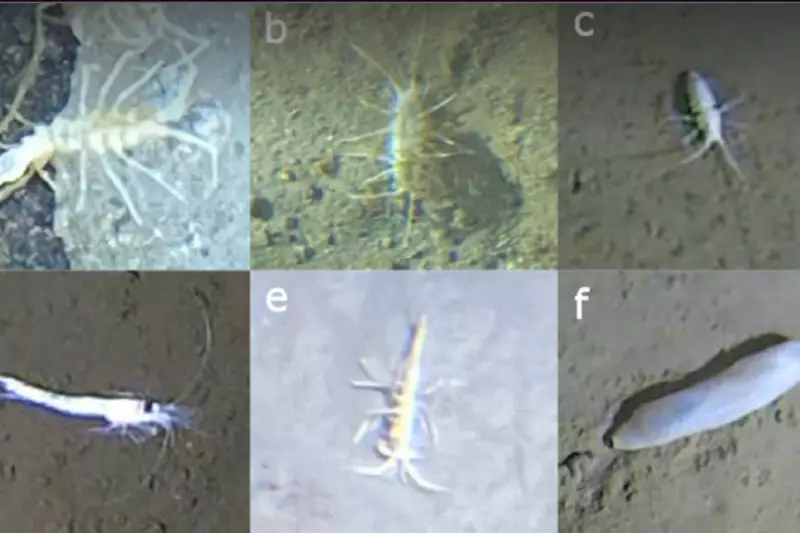
In a groundbreaking exploration of Earth's final frontier, Japanese scientists have pulled back the curtain on a hidden world of bizarre deep-sea creatures thriving in one of the planet's most volatile regions. The discovery comes from the treacherous depths of the Pacific Ocean's Ring of Fire, where tectonic chaos creates the perfect conditions for life to evolve in extraordinary ways.
The Abyssal Treasure Trove
Marine researchers from Japan's Agency for Marine-Earth Science and Technology (JAMSTEC) have successfully retrieved an astonishing collection of previously unknown species from crushing depths exceeding 5,000 metres. These alien-like organisms have adapted to survive in complete darkness, under immense pressure, and in waters that would be toxic to most life forms.
The expedition focused on the deep ocean trenches surrounding Japan, where the Pacific Plate plunges beneath the Philippine Sea Plate, creating one of the most geologically active regions on Earth. It's here, in these submarine canyons, that evolution has taken some of its most creative turns.
Life Against All Odds
What makes these discoveries particularly remarkable is the environment these creatures call home. The Ring of Fire is notorious for its frequent earthquakes and volcanic activity, creating conditions that scientists once believed were too extreme for complex life.
Yet the research team documented numerous species displaying incredible adaptations:
- Transparent-bodied fish that are nearly invisible in the darkness
- Creatures producing their own light through bioluminescence
- Organisms thriving near hydrothermal vents in complete darkness
- Species capable of withstanding extreme pressure and temperature variations
Scientific Implications and Future Research
These findings are more than just biological curiosities - they represent crucial pieces in understanding how life can persist in Earth's most challenging environments. The discoveries could have far-reaching implications for everything from pharmaceutical research to our understanding of how life might survive on other planets.
Dr. Takashi Okutani, the lead marine biologist on the project, emphasised the significance: "Each new species we discover in these extreme environments teaches us something fundamental about the resilience of life. These creatures have evolved solutions to problems we're only beginning to understand."
The research team continues to analyse their findings, with particular focus on how these deep-sea ecosystems are connected and how they might be affected by changing ocean conditions. As deep-sea mining and climate change pose new threats to these fragile environments, understanding their unique biodiversity becomes increasingly urgent.





